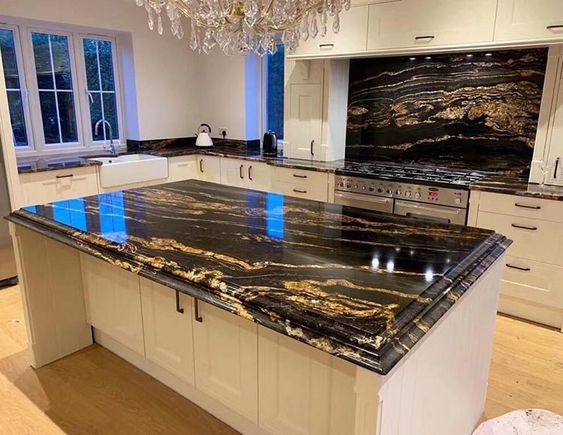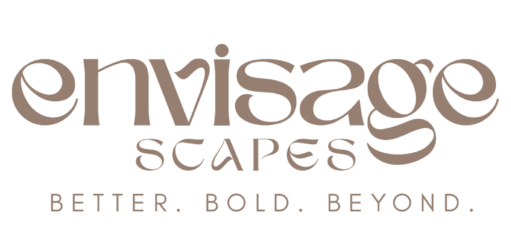Comparing 3 Popular Countertop Materials
Choosing the right countertop material can greatly enhance the functionality and aesthetics of your kitchen. It is common to feel confused when trying to choose the right type of kitchen countertop. This is because the three most popular options – solid surface, quartz, and slab granite – have a lot of similarities in terms of their appearance and properties.
Countertop materials have come a long way in recent years, with innovations in technology and design offering more choices than ever before. Upgrading your countertop materials can be a smart investment, not only adding value to your home but also improving your daily life.
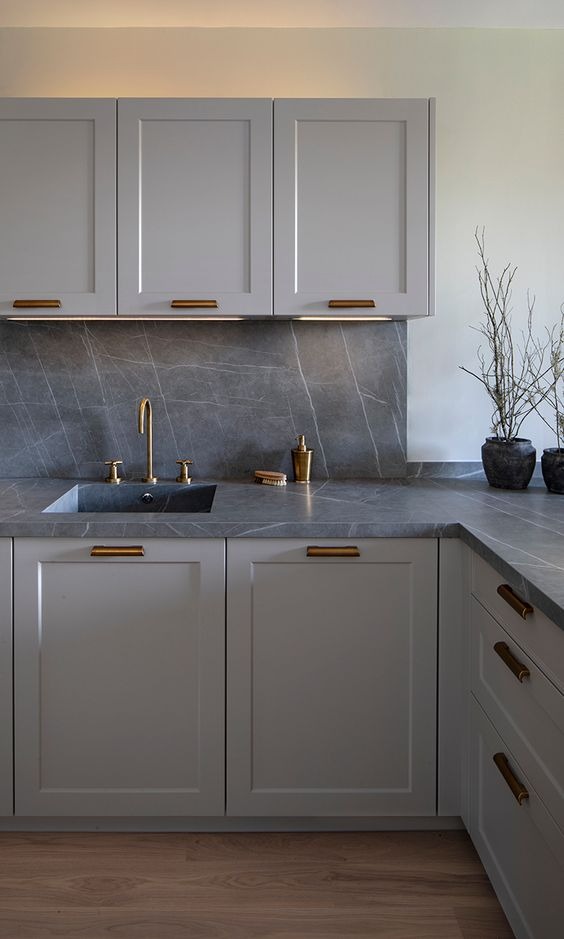
With so many options available, it’s important to carefully consider the pros and cons of different countertop materials before making a decision. Despite looking similar to granite, solid surface and quartz countertops are designed to mimic the stone-like appearance and consistent composition of granite.
As a result, these materials are all highly sought-after by homebuyers and can add value to your home when used as kitchen countertops. However, it is only when you closely examine and interact with each material that you can begin to notice the differences between them.
Each countertop material has unique qualities that may work better or worse for your specific needs and preferences. Therefore, it’s important to consider your own situation carefully and choose the countertop material that suits your needs best.
1. Solid Surface Countertops
Solid surface countertops are a type of countertop material that is composed of heavy polymers and minerals. It is a popular choice among homeowners due to its affordability and availability in different brand names.
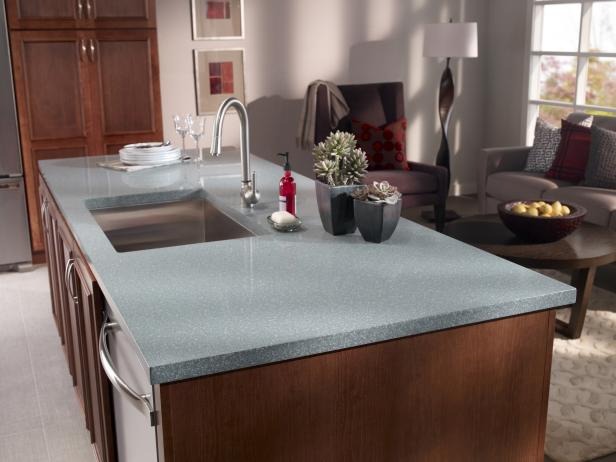
Brand Names
Some of the most popular brand names for solid surface countertops are Corian, Formica Solid Surface, Avonite, Staron, Swanstone, and Wilsonarts. These brand names offer a wide range of options in terms of color, design, and texture.
Composition
Solid surface countertops are made up of approximately 33% synthetic polymers and 66% natural minerals. This unique composition gives it a solid, durable quality that is resistant to scratches and stains.
Quick History
Initially developed by Dupont under the brand name Corian, solid surface countertops were created as a more robust alternative to the popular laminate countertop material. After Dupont’s patent expired, other companies entered the market and started producing their own versions of solid surface countertops.
Popularity
Although it reached its peak in popularity in the 1980s, when few other alternatives were available, solid surface countertops remain a practical and reasonably priced option for homeowners today. It is a functional material that can add aesthetic value to any kitchen or bathroom renovation.
Appearance
One of the defining characteristics of solid surface countertops is their uniform appearance. The material can be polished to a glossy sheen, but manufacturers advise against doing so as it will quickly reveal any scratches or blemishes on the surface.
Touch
When touched, solid surface countertops have a soft and matte-like feel, similar to that of a bar of soap. Over time, scratches may appear on the surface, contributing to an increased matte-like texture.
Visibility
In terms of installation, solid surface countertops have the least visible seams of all countertop materials. This is because the seaming caulk used to join two pieces of solid surface material is perfectly keyed to the surface, creating a seamless finish that is nearly invisible to the eye.
This feature contributes to the overall aesthetic appeal of the material and makes it a popular choice among homeowners looking for a clean and polished look in their kitchen or bathroom.
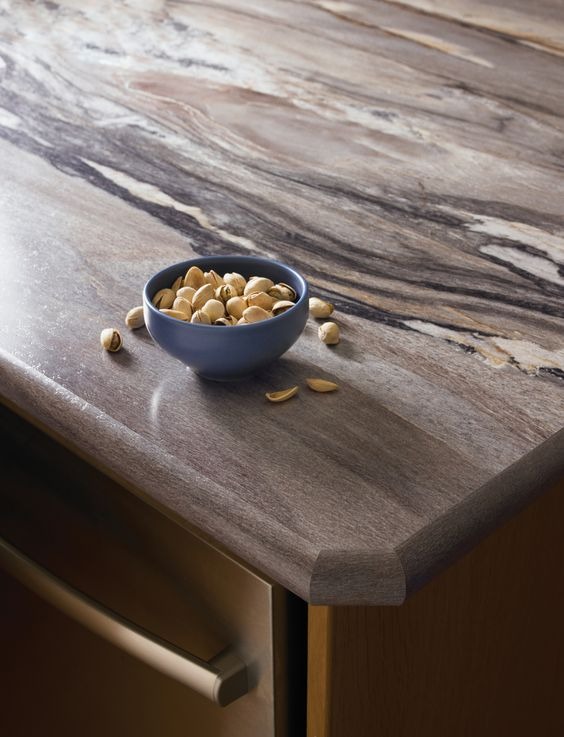
Advantage
Solid surface countertops have several advantages over other materials. For one, they are non-porous, which means they do not absorb liquids and never need to be sealed. This makes them resistant to stains and easy to clean.
Installation
While professional installation is still recommended for solid surface countertops, it is the only material on this list that do-it-yourselfers might be able to cut and install themselves, particularly on a small scale.
Durability
Solid surface countertops are not completely scratch or scorch-proof, but scratches can be easily sanded out by the homeowner or a professional. This means that the material is relatively easy to maintain and repair if necessary.
Overall, solid surface countertops offer a practical and functional option for homeowners who want a durable and easy-to-maintain surface in their kitchen or bathroom.
Benefits of buying Solid Surface Countertops
If you are looking for a straightforward and uniform countertop option that is competitively priced, then solid surface countertops may be the right choice for you. This material has a homogeneous appearance that is both practical and aesthetically pleasing.
It is available in a range of colors and finishes, making it a versatile choice for any kitchen or bathroom renovation. Additionally, solid surface countertops are highly durable and resistant to scratches, stains, and heat damage.
They are also non-porous and do not require sealing, making them easy to maintain and clean. Overall, if you value simplicity and practicality in your home design, then solid surface countertops are a smart and cost-effective choice.
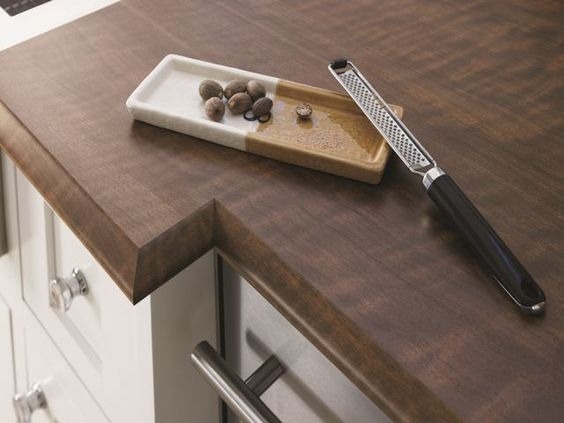
2. Quartz Countertops
Quartz countertops are a popular choice for homeowners looking for a durable and stylish surface. This material is made by combining natural minerals with resins to create a hard, rock-like surface that is ideal for use in kitchens and bathrooms.
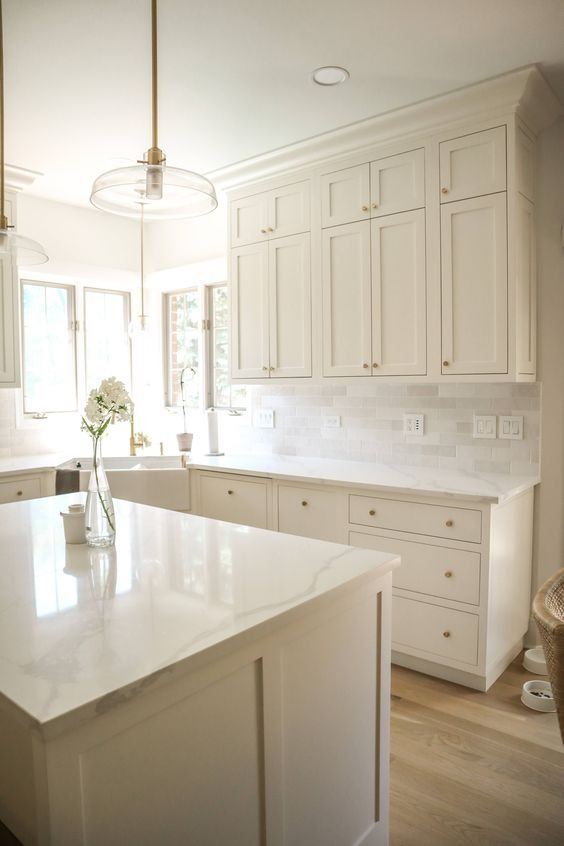
Brand Names
Quartz countertops are marketed under several brand names, including Caesarstone, Cambria, and Silestone. These brands use slurry of natural minerals combined with resins to create a highly durable surface that is resistant to scratches, stains, and heat damage.
Composition
The composition of quartz countertops is approximately 10-percent binders and 90-percent stone-like materials, such as crushed granite, marble, and natural stone, or recycled industrial waste like ceramic, silica, glass, and mirrors.
Quick History
The technology behind quartz countertops was first developed by the Italian company Bretonstone in 1963. Today, the Bretonstone quartz counter technology is licensed to 52 companies that use the original patent.
Popularity
Quartz countertops have become increasingly popular in recent years and are now installed in more homes than ever before. This is due to their durability, low maintenance requirements, and wide range of colors and patterns. Whether you’re remodeling your kitchen or bathroom, quartz countertops offer a practical and stylish choice for any home.
Appearance
Quartz countertops possess a rich, deep, and three-dimensional appearance that gives them a lustrous look. These countertops can be honed to achieve a glossy finish, providing an added level of customization.
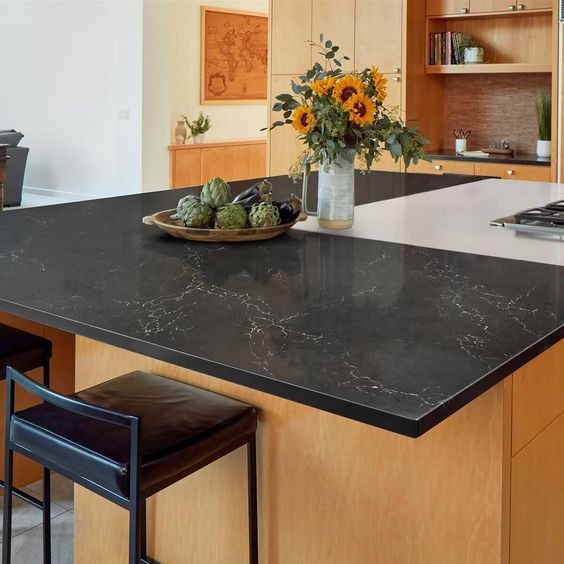
Touch
Quartz counters have a smooth and glossy feel, much like honed natural stone, which can add to their aesthetic appeal.
Visibility
While seams are visible in quartz countertops, a skilled installer can expertly conceal them, ensuring a seamless appearance.
Advantage
Similar to solid surface countertops, quartz countertops are non-porous and do not require sealing.
Installation
It is essential to have them professionally installed to ensure they are accurately measured and fitted to your space.
Durability
Quartz countertops are highly durable and resistant to cracking. However, they can be susceptible to scorching, so it is essential to use trivets to avoid heat damage.
Benefits of buying Solid Surface Countertops
If you are looking for a high-end and durable countertop option that resembles natural stone, then quartz countertops may be the right choice for you. This material has a solid and uniform appearance that is both elegant and practical.
It is available in various colors and finishes, making it versatile for any kitchen or bathroom renovation. Furthermore, quartz countertops are highly resistant to scratches, stains, and heat damage, making them an ideal choice for a low-maintenance surface.
They are also non-porous, which means they do not require sealing and are easy to clean. Overall, if you value durability and a sophisticated look in your home design, then quartz countertops are an excellent investment.
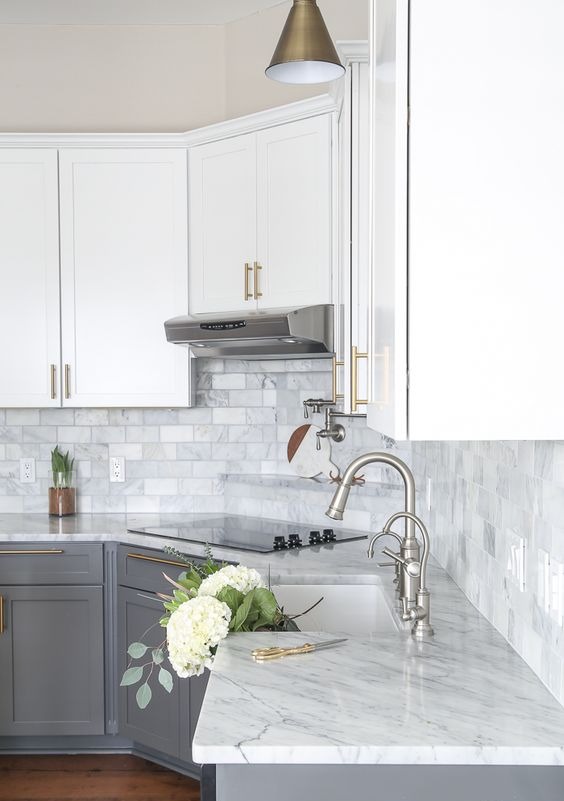
3. Slab Granite Countertops
Slab granite countertops offer a 100-percent natural, authentic look that is unmatched by any other countertop material. Unlike other types of countertops, slab granite is directly quarried from the earth and cut into slabs, with no additives or alterations.
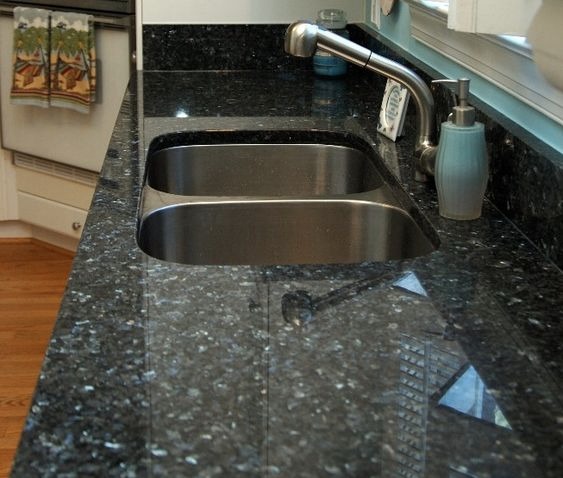
Composition and Brand Names
One of the unique features of slab granite is that it is not associated with any brand names, as it is a natural product that varies from slab to slab. This makes slab granite a truly unique and one-of-a-kind choice for homeowners who value authenticity in their home design.
Quick History
Slab granite is quarried primarily from India, China, and Brazil, and then shipped to the U.S. for fabrication. While it was once considered a luxury material found only in mansions, slab granite has become more accessible and can be found in homes of all demographics.
Popularity
While slab granite is a high-quality material, it does require some maintenance and care to keep it looking its best. It is important to have slab granite professionally installed as it can be a finicky material that is prone to cracking and chipping.
In 1990s and 2000s slab granite popularity has waned. However, for homeowners who want a truly unique and natural look for their countertops, slab granite is the best choice.
Appearance
Slab granite has a distinct appearance that sets it apart from other countertop materials. Its lustrous, rich, and crystalline surface gives it an attractively chaotic look that differs from the homogeneous appearance of quartz countertops.
Touch
Similar to quartz, slab granite has a smooth and glossy surface that can be honed or polished to achieve the desired finish.
Visibility
However, when it comes to seams, slab granite is comparable to quartz. The seams are visible, but a skilled installer can effectively conceal them for a more seamless look.
Disadvantage
Regular sealing is necessary for slab granite because it is a porous material that can stain easily if left unsealed.
Installation
Professional installation is a must for slab granite, as its fabrication and installation are not suited for DIY projects.
Durability
Although it is a durable material, slab granite is prone to cracking, and proper sealing is crucial to prevent it from absorbing stains.
Benefits of buying Solid Surface Countertops
If you are looking for a top-tier stone countertop with a unique and distinctive appearance, and do not mind performing some occasional maintenance, then slab granite may be the right choice for you.
Slab granite is a 100% natural stone material, quarried from the earth and sliced into slabs, with no additives or alterations. It has a lustrous and crystalline appearance, which adds a chaotic charm to any kitchen or bathroom.
However, slab granite is porous and needs to be regularly sealed to prevent stains. Professional installation is required, as it cannot be handled by a do-it-yourselfer. Also, slab granite can crack if not properly cared for.
